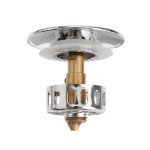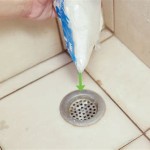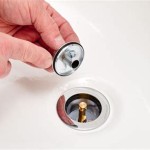Ceramic Bathtub Paint: Essential Considerations for a Flawless Transformation
Revitalizing an outdated or worn-out ceramic bathtub can be a cost-effective and convenient solution compared to a complete replacement. Ceramic bathtub paint offers a wide range of benefits, from enhancing the aesthetic appeal to protecting the surface from wear and tear. To achieve a successful paint job, it is crucial to understand the essential aspects of ceramic bathtub paint.
Surface Preparation
Proper surface preparation is key to ensuring the paint adheres effectively to the ceramic surface. Start by thoroughly cleaning the bathtub with a non-abrasive cleaner and a damp cloth to remove dirt, soap scum, and any other residue. Use fine-grit sandpaper to lightly sand the surface to create a smooth, matte finish that will provide better adhesion for the paint.
Primer Selection
A primer is essential for creating a strong bond between the ceramic surface and the paint. Choose a primer specifically designed for use on ceramic surfaces or bathtub refinishing. Apply the primer evenly, following the manufacturer's instructions regarding drying time and additional coats.
Paint Choice and Application
Select a ceramic bathtub paint that is durable, resistant to moisture and chemicals, and available in your desired color or finish. Use a high-quality brush or roller designed for epoxy coatings, ensuring even application. Apply multiple thin coats, allowing ample drying time between each layer according to the manufacturer's recommendations.
Curing and Maintenance
Allow the painted bathtub to cure for the specified time recommended by the paint manufacturer. This curing period is essential for the paint to fully harden and develop its optimal properties. Avoid using the bathtub during this time. For ongoing maintenance, clean the painted surface regularly with mild, non-abrasive cleaners and avoid harsh chemicals or abrasive sponges.
Additional Tips for a Successful Paint Job
* Wear a respirator and provide adequate ventilation during application and curing. * Use a drop cloth or plastic sheeting to protect surrounding surfaces from paint splatter. * Allow ample time for drying between coats and before using the bathtub. * Consider hiring a professional refinisher if you lack experience with this type of project. * Follow the manufacturer's instructions carefully for optimal results and safety precautions.
Diy Painted Bathtub Follow Up Your Questions Answered Addicted 2 Decorating

Can You Paint A Bathtub Yes And Here S How Bob Vila

My Painted Bathtub 5 Years Later An Honest Review Of Refinished Jacuzzi Tub

How To Paint A Ceramic Tub Or Sink Do It Best

How To Paint A Tub With Rustoleum What Not Do

Yes You Can Paint Your Bathtub And Tile Here S How Toolbox Divas

How To Paint A Bathtub Yourself The Nifty Nester

How To Cost Effectively Re Enamel Refinish A Old Bath Tub Polish Style

How To Paint The Bathtub With Pictures Wikihow

How To Refinish An Old Clawfoot Bath Tub








